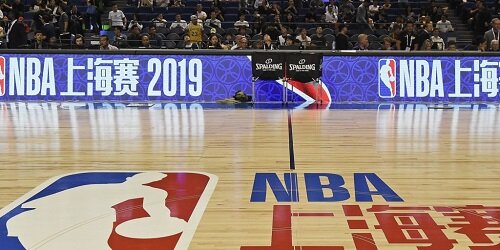Over the past few weeks, several American corporations have found themselves embroiled in public relations nightmares related to the protests in Hong Kong. The NBA, Blizzard Entertainment, and many others have been accused of censoring both players and fans at the request (or at least implied desire) of the Chinese government. This week, we’ll look at how the Chinese government is increasingly pressuring American corporations to limit the speech of everyday Americans.
So what’s going on in Hong Kong? We’ve covered the situation in Hong Kong in a previous post, but the short version is that Hong Kong has been a unique region of China for the past few decades. Hong Kong used to be part of the British Empire and kept some aspects of democratic rule when it was transferred over to China in 1997. Since then, China has increasingly tried to bring its version of authoritarian politics to Hong Kong. The latest protests were kicked off back in June when the ruling council of Hong Kong tried to pass a bill that would allow people in Hong Kong to be sent to mainland China for violating Chinese laws. In short, that would have meant that anyone advocating for democracy in Hong Kong could be sent to the Chinese judicial system (which doesn’t exactly provide a fair trial in many cases). Though the bill was abandoned, the protests continue as this is widely seen as the last opportunity for Hong Kong to keep its democratic traditions.
For years, the NBA, Blizzard Entertainment, and other companies have enjoyed very successful partnerships with the Chinese government. Last year alone, nearly half a billion people in China watched NBA games. For context, this is far larger than the entire population of the United States! Blizzard, a company known for massive online gaming competitions, has taken in nearly $400 million from the Asia-Pacific region in the first half of 2019 alone. So, to put it simply, there is a lot of money to be made in the Chinese market.
China’s peculiar involvement in American companies is no secret. In fact, we have covered this exact topic in a previous blog post. For decades, the United States has accused the Chinese government of stealing American corporate secrets and technology. In some cases, the information is stolen outright via hacking or corporate espionage. In other cases, the Chinese government forces American companies to partner with an affiliated Chinese company in order to enter the Chinese market. Then, China expels the American company once enough proprietary information has been taken. Even more alarming, tech companies like Huawei are looking to embed themselves directly into the global information infrastructure through the use of emerging 5G technologies. But the current drama around entities like the NBA is of a completely different nature.
So, how are the NBA and other companies suddenly involved in this scandal? In this case, China’s influence is moving into the arena of information censorship. The NBA’s drama started when the General Manager for the Houston Rockets, Daryl Morey, published a tweet in support of the Hong Kong protests. In the case of Blizzard Entertainment, the championship winner of the game Hearthstone was stripped of his prize and banned from the game for a year for expressing support for Hong Kong’s protests. Basically, players and even fans who promote speech that the Chinese government doesn’t like are being coerced into silence. Companies have long avoided politically sensitive issues in their official capacity for fear of angering nations in which they want to do business. But extending this to the private free speech of employees, customers, and fans is a dramatic escalation. In essence, these companies are allowing a foreign nation to dictate the speech of anyone who comes in contact with their organization.
What does this mean for you? There are real world examples happening right now. People have been kicked out of NBA games for wearing “Free Hong Kong” shirts. Others have been banned from playing in online tournaments for their posts about Hong Kong. To be fair, it is certainly within the right of these companies to limit speech in these ways as they are private entities not bound to the First Amendment. But whether or not you support the protests happening in Hong Kong (if you even care, which you should), the acceptance of such behavior at the behest of a foreign government is troubling. Today, the issue is about Hong Kong, but there is no reason to think that China (or any other nation with leverage over an American company) wouldn’t begin to constrain speech on a large variety of issues that they do not deem to be in their interest. With nations like China looking to become more and more integrated with the daily interactions of modern life, the lines between territorial sovereignty are becoming blurred. When that happens, other nations can begin to have a substantial impact on the freedom of speech which we enjoy every day.



